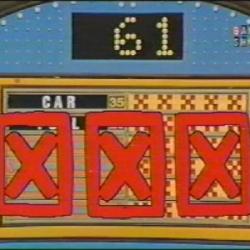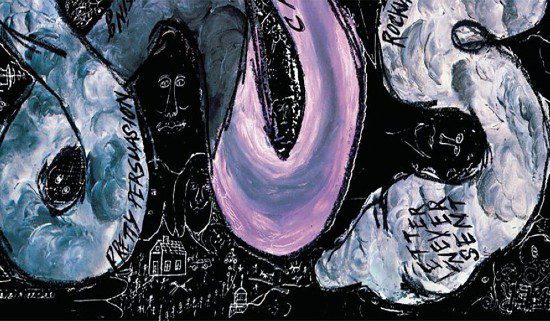Two recent stories illustrate how some of journalism's conventions can result in distorting the truth.
1. Two Sides to Every Fact.
This story by USA Today's Peronet Despeignes offers an example of how the two-sides-to-every-story notion of balance can end up twisting fact into opinion:
The federal budget deficit will reach $477 billion this year, the biggest shortfall ever in dollar terms, the Congressional Budget Office said Monday.
Over the next 10 years, cumulative deficits are likely to add almost $2.4 trillion to the national debt, the CBO estimate said.
The forecast comes as Democrats campaigning to run against President Bush charge that he has turned a surplus into a deficit.
The key here is "Democrats … charge." After the first two sentences, this is a rather strange attribution. During President Bush's tenure, the surplus has, in fact, been turned into a deficit. Despeignes seems uncomfortable simply stating fiscal statistics relating to the incumbent administration when those facts may seem unflattering. So, to avoid any appearance of bias, the reporter attributes any unflattering facts to the "charges" of the president's political opponents.
The effect of this practice is not to produce a more balanced report, but rather to inject the notion that all facts are simply matters of opinion. It's weirdly deconstructionist — there is no truth, only competing claims for power.
The editors at The Seattle Times seem to have been concerned about this Derrida-da approach to the facts, changing the wording of the Gannett News Service article to read: "The forecast comes as Democrats campaigning to run against President Bush point out that he has turned a surplus into a deficit."
This corrects the distorting syntax of the original GNS piece, but it also masks the fact that there is a charge being leveled here by the Democratic challengers. A more "fair and balanced" phrasing might be something like "Democrats point out that during the Bush administration surpluses have turned into deficits, and they lay the blame for this change on the president." (That's a bit cumbersome, but you get the idea.)
It's interesting that USA Today actually ran a different version of this story than the one released via GNS:
The federal budget deficit will reach $477 billion this year, the biggest ever in dollar terms, the Congressional Budget Office said Monday.
The forecast comes as Democrats running against President Bush, and disgruntled conservatives, complain that the deficit and spending are out of control.
"In just three short years, President Bush's reckless tax cuts for the wealthy have turned record surpluses into record deficits," Democratic presidential candidate Wesley Clark said Monday.
2. Being "fair and balanced" to the imbalanced.
The paper I work for has been running a series of page A1 candidate profile articles in the run-up to the Delaware primary election on Feb. 3. To ensure that this series is impartial and balanced, the paper has decided to profile — in alphabetical order — each of the candidates who will appear on the state's ballot.
And therein lies the problem.
Here is the list of candidates profiled: Wesley Clark, Howard Dean, John Edwards, John Kerry, Dennis Kucinich, Lyndon LaRouche, Joe Lieberman and Al Sharpton.
Due to a commendable but misapplied notion of journalistic fairness, the paper has chosen to ignore the rather salient fact of the matter here: Lyndon LaRouche is a fringe lunatic and not a serious candidate. Including him in this list insults the legitimate candidates, the paper's readership and Delaware voters.
Here again the concern for balance devolves into a hypersensitivity to avoid accusations of bias, which in turn produces journalism that is incapable of reporting certain true things. The newspaper is no longer able to call a quack a quack.
Reporter Patrick Jackson gamely tries to provide an accurate picture of the perennial fringe candidate, but the "balanced" format does not allow for accuracy or truth-telling — only the strained pretense that LaRouche is somehow just as legitimate as the seven actual Democrats seeking the Democratic nomination. The overall impression of the piece is of someone desperately trying to change the subject after someone has loudly broken wind at a polite dinner party.












